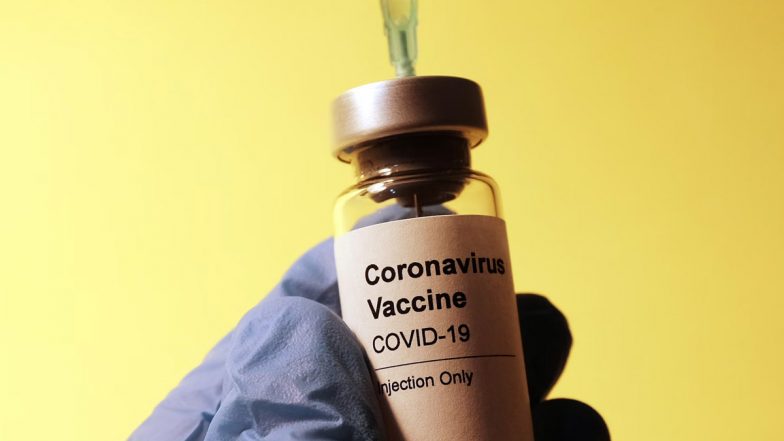
New York, December 2 : A two-dose experimental vaccine can provide protection against severe Covid even one year even after the jabs, researchers report. The results may reduce the need for frequent boosters and protect special populations that don’t have fully developed immune systems, such as children.
In 2021, a group of scientists reported that the Moderna mRNA vaccine and a protein-based vaccine candidate containing an adjuvant — a substance that enhances immune responses — elicited durable neutralising antibody responses to Covid virus during infancy in pre-clinical research. World’s First Intra-Nasal Vaccine for Coronavirus Gets CDSCO’s Approval for Restricted Use.
Now, a follow-up study by the same group led by researchers at the University of North Carolina at Chapel Hill, Weill Cornell Medicine and NewYork-Presbyterian has found that the 2-dose vaccines still provide protection against lung disease in rhesus macaques one year after they had been vaccinated as infants.
“Following up on our SARS-CoV-2 infant rhesus macaque study, we gave the animals a high-dose challenge with a SARS-CoV-2 variant one year later to assess durability of vaccine-induced immune responses and their efficacy,” said Dr Kristina De Paris, professor of microbiology and immunology at the UNC School of Medicine. What Is Zombie Virus? Know All About 48,500-Year-Old Pandoravirus Yedoma, Revived by French Scientists, That Sparks Fears of Another Pandemic.
“We found that both vaccines protected against lung disease, despite the fact that the challenge SARS-CoV-2 variants acquired numerous mutations in their spike protein that differed from the vaccine immunogen,” Paris said in a paper published in the journal Science Translational Medicine.
Overall, the adjuvanted protein vaccine candidate maintained higher levels of neutralising antibodies and provided superior protection compared to the mRNA vaccine.
“With Covid-19, young infants are one of the most vulnerable paediatric populations. This fall, we are seeing a sharp rise in hospitalisations due to respiratory virus disease in infants as the result of a confluence of SARS-CoV-2, flu, and RSV circulation,” said Dr Sallie Permar, chair of the Department of Pediatrics at Weill Cornell Medicine.
“We should take every opportunity to provide safe and effective vaccine immunity to our youngest patients, including considering Covid-19 vaccination earlier than the currently recommended 6 months of age,” Permar noted.
(The above story first appeared on Morning Tidings on Dec 02, 2022 11:43 AM IST. For more news and updates on politics, world, sports, entertainment and lifestyle, log on to our website morningtidings.com).
Leave a Reply